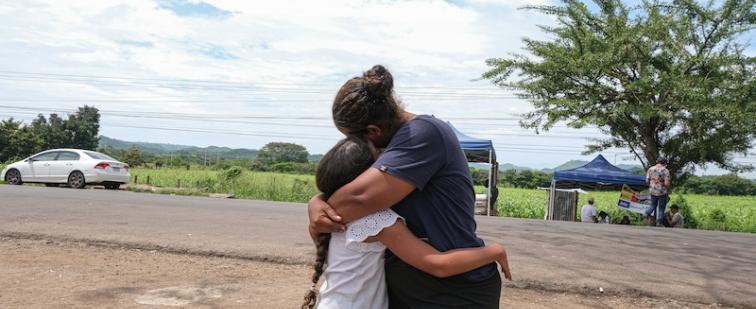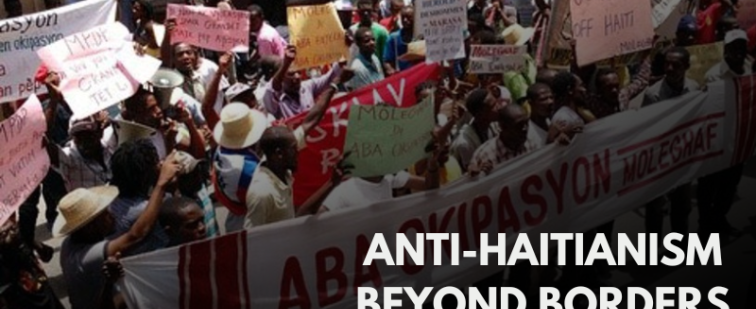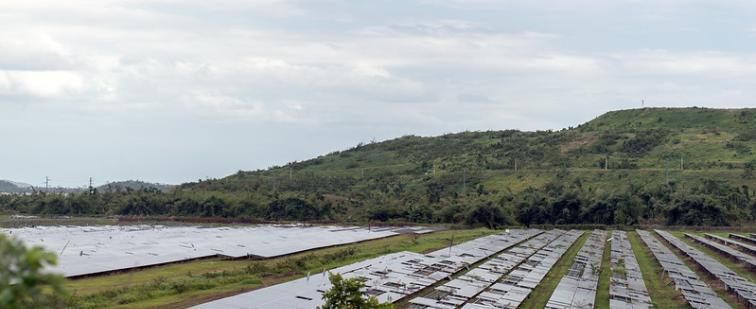Home
During President Bush’s visit to Brazil thousands of poor, rural members of the international Via Campesina social movement and the Brazilian Movement of the Landless Rural Workers (MST) orchestrated massive, non-violent occupations of multinational agribusiness corporations throughout the country.
Activists gathered in Quito, Ecuador the first week of March in an International Conference for the Abolition of Foreign Military Bases. The International Network for the Abolition of Foreign Military Bases is a global network of individuals, organizations, social movements, and coalitions working for the closure of foreign military bases and other forms of military presence worldwide.
U.S. President George W. Bush arrives to Uruguay's capital, Montevideo, today, as part of his longest Latin American tour since his election in 2000. The significance of the visit, coming only a month and a half after the two countries signed a Trade and Investment Framework Agreement (TIFA), marking the first potential steps towards a Free Trade Agreement (TLC in its Spanish acronym), is not lost on the residents of this city, which composes half of this country's tiny population of 3.4 million.
"State of Denial" is the title of Bob Woodward's famous book on the Bush team's road to disaster in Iraq, but it would have served just as well for a description of their Latin America policy. This week President Bush heads South for a seven-day, five country, trip to Latin America to see if he can counter the populist political tide that has brought left governments to about half the population of the region.
It was exactly forty years ago that the musical revolution that came to be known as Tropicália was introduced to Brazil, and the world. Tropicália's genesis can be dated with some precision. It came when two musicians in their mid-twenties, Caetano Veloso and Gilberto Gil, courageously took to the stage at a 1967 song festival in São Paulo with compositions that they knew would sorely stress the boundaries of musical taste. Their performance was epoch-defining. It was a kind of big bang from which much that came afterward in Brazilian pop music history evolved.
Patricia Isasa has fought for justice and transparency for over 30 years. At the time of her kidnapping, July of 1976, architect Patricia Isasa was 16 years old. She was abducted by an Argentine commando group of the provincial police and taken to one of the 375 clandestine detention and torture centers set up during the dictatorship.
In this 200th anniversary year of the abolitition of the trans-Atlantic slave trade, the governments of the Caribbean Community (Caricom) are, commendably, singing from the same hymn sheet. At their 18th inter-sessional meeting held last week in St. Vincent and the Grenadines, they unanimously agreed to request from the ex-European colonial powers both an apology and reparations for profiting from the abominable crime of African slavery.
New social movements have emerged in Bolivia over the "price of fire"—access to basic elements of survival like water, gas, land, coca, employment, and other resources. From the first moments of Spanish colonization to today's headlines, The Price of Fire, a new book by award-winning Upside Down World editor Benjamin Dangl, offers a gripping account of clashes in Bolivia between corporate and people's power, contextualizing them regionally, culturally, and historically. Read the introduction...
The leftist government of Rafael Correa has moved assertively in its relations with the United States during its first month in office. The Minister of Foreign Relations, María Fernanda Espinosa, in a meeting with the Foreign Press Association in Quito declared that Ecuador intends to close the U.S. military base located at Manta. “Ecuador is a sovereign nation, we do not need any foreign troops in our country,” she said. The treaty for the base expires in 2009 and will not be renewed.
Residents and activists already concerned about the devastating impact proposed dam projects could have on southern Chile’s pristine wilderness, now have a new argument for why it is simply a bad idea to dam Patagonia’s rivers: earthquakes.











